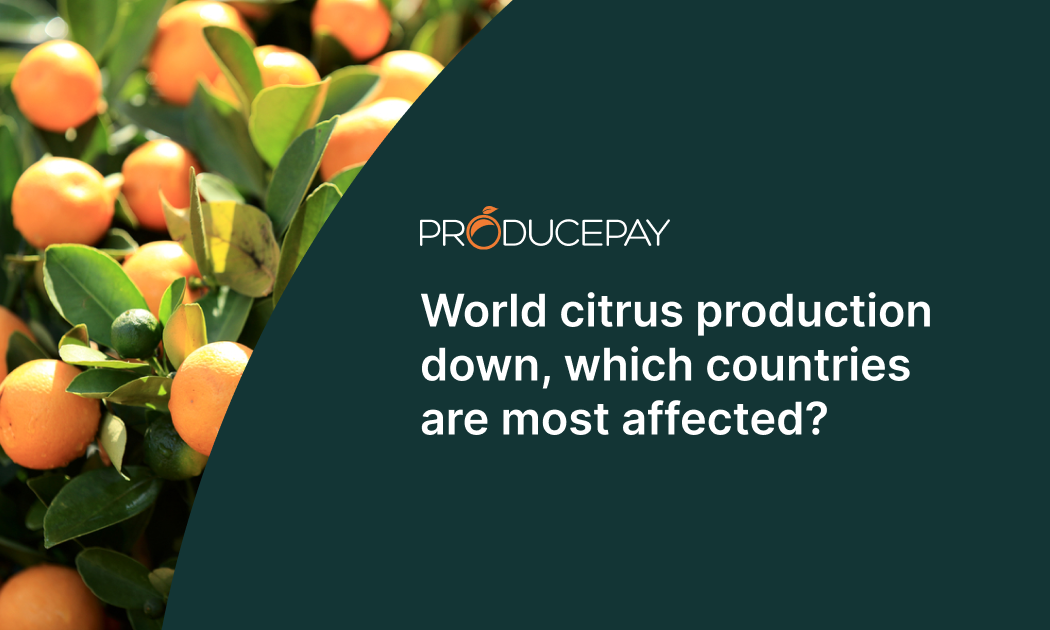
World citrus production down, which countries are most affected?
Citrus fruits have experienced a significant increase in production and exports worldwide in recent years. However, according to a recent USDA report, global citrus production will slow in 2023 due to adverse weather conditions and rising agricultural input costs.
Specifically, this is expected to result in a decline in the production of oranges, tangerines, lemons, limes and grapefruit in several countries, including the United States, China, Morocco, Turkey, Mexico and Argentina.
Orange production could be 5% lower than last year, with a larger harvest in Egypt offset by lower production in the European Union and the United States. HLB disease and hurricanes in Florida have severely affected crops in these regions.
Meanwhile, global lime and lemon production is forecast to decline by 7%, with lower production in Argentina, Mexico and Turkey. Tangerines are also expected to reduce by 1.2 million tons due to poor weather in China, Morocco and Turkey.
Not all countries will see decrease in production
While the global trend will be downward, not all citrus-producing countries will be affected.
In Chile, orange and lime production should increase due to favorable weather conditions and an increased harvest area.
Tangerines should see an increase of 67,000 tons to 237,000 tons, while orange production will grow by 36,000 tons for a total of 200,000 tons. Finally, lemons are projected to increase by 60,000 tons to 200,000 tons.
In Peru, the start of the citrus season is slightly delayed, but the growers expect to harvest up to 270,000 tons of citrus in 2023, a growth of 4.2% compared to 2022. However, tangerine production will decrease by 20,000 tons.
What is the current situation of the citrus industry in Mexico?
Mexico enjoyed a 55.1% increase in fresh or dried citrus exports in the last three years, ranks second in lime production with 13.5% of the total world harvest, and is the fifth largest orange producer globally.
Total lime production was 3,139,000 metric tons in 2022, an increase of 6.3% over 2021 and 10.1% over 2020. Grapefruit production accounted for 489,000 metric tons in 2022, an increase of 10.1% over the previous year.
While the United States is the largest market for Mexican citrus, it also exports to 18 other nations, including the Netherlands, Japan, Guatemala, Uruguay, Honduras, the United Kingdom, Argentina and Canada.
However, the domestic industry faces several threats, including climate change and the HLB virus.
Climate change has led to extreme weather conditions and fluctuations in water availability, affecting citrus production in the country. This has also magnified the damage of HLB because infected trees are more susceptible to water stress and extreme temperatures.
Critical citrus production and marketing challenges
While the status of citrus production worldwide is diverse, it is essential to note that the sector faces significant challenges, including:
- Pests and diseases: One of the main difficulties facing citrus production is the incidence of diseases and insects that affect fruit quality and can depress output. Among the most common diseases are Phytophthora citrophthora, Xylella fastidiosa and citrus canker, while the most frequent pests are fruit flies, red spider mites and aphids.
- Competitiveness in the international market: Citrus production faces increasing competition in the global market, especially from countries with lower production costs and less regulation of plant health.
- Climate change and extreme weather conditions: Climate change and weather conditions, such as droughts, floods, and frosts, also hurt citrus production, as these phenomena can affect fruit quality and quantity.
What can growers do?
Citrus growers face both climatic and yield challenges in production and an increasingly globalized and competitive market. That is why solutions such as ProducePay’s Pre-Season Financing or its Marketplace can help them succeed in this and future seasons and enable their agribusiness to grow year after year.
Sources: Fresh Fruit Portal, Portal Frutícola, Agraria, Contraréplica
